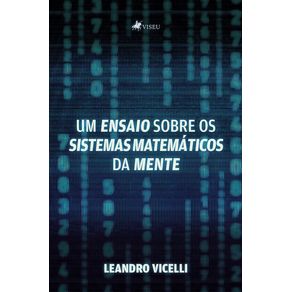-
DEPARTAMENTOS
- ANIMAIS DE ESTIMAÇÃO
- ARTES
- AUTO AJUDA
-
BEM ESTAR E LAZER
-
CATEGORIAS
-
-
CULINÁRIA E GASTRONOMIA
-
CATEGORIAS
-
-
ESPORTES
-
CATEGORIAS
-
- INFANTIL
-
RELIGIÃO
-
CATEGORIAS
-
- ADMINISTRAÇÃO E NEGÓCIOS
-
CIÊNCIAS BIOLÓGICAS E NATURAIS
-
CATEGORIAS
-
- DIREITO
- ECONOMIA
-
MEDICINA
-
CATEGORIAS
-
-
TODOS DEPARTAMENTOS
-
INTERESSE GERAL
-
LIVROS TÉCNICOS
-
- DISCIPLINAS
- ACESSÓRIOS
- FORMATURA
- PAPELARIA
JULIA KRISTEVA
Cód:
491_9781861715487
JULIA KRISTEVA
Autor:
Editora:
Código:
491_9781861715487
Vendido e entregue por Um Livro
J U L I A K R I S T E V AART, LOVE, MELANCHOLY, PHILOSOPHY, SEMIOTICS AND PSYCHOANALYSISBy Kelly Ives Julia Kristeva was born in Bulgaria in 1941. Educated in part by French nuns, she was involved early on in her life with Communist Party youth organizations and childrens groups. Since moving to Paris in the 1960s, Kristeva has risen in stature in intellectual circles so that she is now regarded as one of the most important thinkers of the contemporary era. EXTRACT FROM CHAPTER 7: JULIA KRISTEVAS THEORY OF LOVE: For Julia Kristeva, love embodies both the semiotic and the symbolic, both knowledge and joy (pace Baruch de Spinoza), both language and affect. Kristeva has written of love in a way that is not facile, demeaning, banal, stereotypical, sexist or pornographic. Her pronouncements on love are quite different from those in the classic texts of love, such as Ovids poems, or the mediaeval Art of Love, or Elizabethan sonnet sequences, or Stendhals De lAmour, or Denis de Rougements LAmour et loccident (Love in the Western World). When Kristeva writes - Vertigo of identity, vertigo of words: love, of the individual, is that sudden revelation, that irremediable cataclysm, of which one speaks only after the fact. Under its sway, one does not speak of. (In Praise of Love) - it seems right and thankfully free of the usual embarrassment of chauvinism that marks much writing about love. Julia Kristeva evokes the wildness of love, the loss of self and the eruption of desire, without sounding idiotic. When Kristeva writes that in love one assumes the right to be extraordinary, it is a great description of being in love. Kristeva is right to describe love as the inrush of total subjectivity, an infinity of subjectivity. In Kristevas psycho-poetic reading, loves the inrush of the totally extraordinary, but at the expense of commonsense (as lovers learn, painfully): Love is the time and space in which I assumes the right to be extraor
Veja mais
































